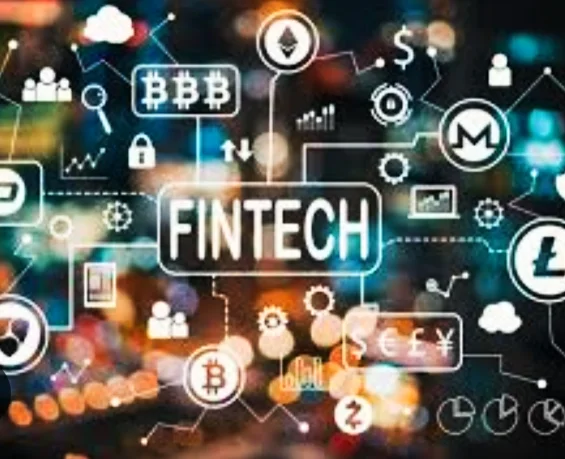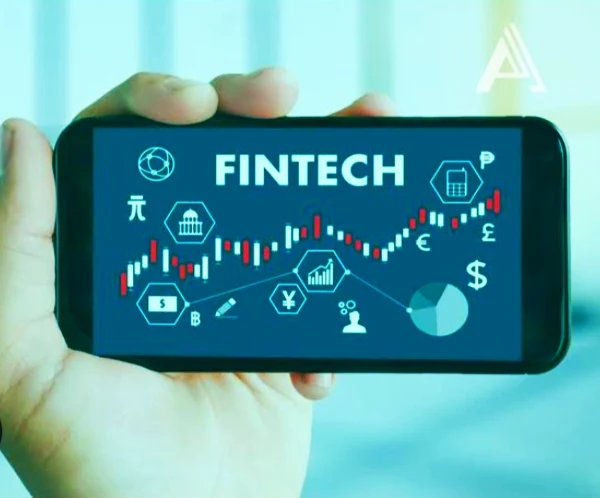History of Fintech
A History of Innovation: A Look Back at the Fintech Timeline
Fintech, though it feels like a recent phenomenon, has a rich history intertwined with the evolution of technology and finance.
A Timeline of Fintech History
| Year | Event |
|---|---|
| 1950s | Early computers begin to be used in financial institutions. |
| 1960s | Electronic Funds Transfer (EFT) systems start to be developed. |
| 1970s | ATMs are introduced, and credit cards become more widespread. |
| 1980s | Home banking systems become available, and online brokerage firms emerge. |
| 1990s | The internet revolutionizes finance, leading to the growth of online banking and e-commerce. |
| 2000s | Mobile payments and peer-to-peer lending platforms become popular. |
| 2010s | Bitcoin and other cryptocurrencies emerge, and fintech startups receive significant funding. |
| 2020s | Open banking, artificial intelligence (AI), and blockchain technology are driving further fintech innovation. |
Here's a glimpse into the key milestones that shaped the fintech landscape we know today:
1. Fintech 1.0 (1886-1967): Laying the groundwork
This era focused on building the foundational infrastructure for a global financial system. Key developments include:
- 1886: The invention of the telegraph facilitates faster communication and financial information exchange.
- 1918: Establishment of Fedwire, a centralized funds transfer service in the US.
- 1960s: The development of mainframe computers lays the groundwork for electronic record-keeping and data processing in banks.
2. Fintech 2.0 (1967-2008): The rise of electronic finance
This period witnessed the rise of electronic financial services:
- 1971: Launch of the NASDAQ stock exchange, the first fully electronic exchange.
- 1973: Establishment of SWIFT (Society for Worldwide Interbank Financial Telecommunication), enabling secure international money transfers.
- 1980s: Proliferation of bank mainframe computers leads to the introduction of ATMs and early online banking systems.
- 1990s: The rise of the internet paves the way for online stock trading and the concept of internet banking.
3. Fintech 3.0 (2008-present): The age of disruption
The financial crisis of 2008 ushered in an era of innovation:
- 2008: The emergence of fintech startups challenging traditional financial institutions with lower fees and greater accessibility.
- 2010s: Rise of mobile banking, peer-to-peer (P2P) lending platforms, and alternative payment solutions like Apple Pay and Venmo.
- 2014: Growing interest from regulators and investors in the fintech space.
- Late 2010s: Introduction of robo-advisors for automated investing and the emergence of cryptocurrencies like Bitcoin.
4. Fintech 4.0 (2018-present): The future unfolds
Today, fintech is embracing emerging technologies:
- Artificial intelligence (AI) and machine learning (ML) for fraud detection, personalized financial advice, and automated underwriting.
- Blockchain technology for secure and transparent transactions, powering cryptocurrencies and smart contracts.
- Open Banking APIs that allow secure data sharing between financial institutions and third-party fintech providers.
- Cloud computing for scalable and cost-effective financial services.
Definition of Fintech
The Tech Twist on Traditional Finance
Fintech, a blend of "finance" and "technology," has become synonymous with innovation in the financial world. It refers to the utilization of technology to improve, automate, and revolutionize how financial services are delivered and used.
In simpler terms, imagine managing your finances with the ease of using your favorite mobile app. Fintech companies are making this a reality by offering a plethora of tech-driven solutions across various financial domains.
Here's a breakdown of the core aspects of fintech:
- Technology as the Driving Force: Fintech is heavily reliant on technology. From mobile apps and cloud computing to artificial intelligence and blockchain, it leverages cutting-edge advancements to streamline financial processes.
- Focus on Accessibility and Convenience: Fintech aims to make financial services more approachable and user-friendly. This can involve offering mobile banking options, simplifying investment platforms, or facilitating faster payment methods.
- Enhancing Efficiency: Fintech automates many traditional financial tasks, saving time and resources. This can encompass automated bill payments, robo-advisors managing investments, or streamlined loan application processes.
By understanding these core principles, you gain a solid grasp of what fintech is and how it's reshaping the financial landscape.
Top 10 Global Fintech Companies
| Rank | Company | Valuation (USD Billion) | Headquarters | Focus |
|---|---|---|---|---|
| 1 | Ant Group | 78.5 | China | Mobile payments |
| 2 | Stripe | 50 | Ireland | Payment processing |
| 3 | Revolut | 33 | U.K. | Mobile banking |
| 4 | Chime Financial | 25 | U.S. | Neobanking |
| 5 | Rapyd | 15 | U.K. | Global payments network |
| 6 | Plaid | 13.4 | U.S. | Financial data network |
| 7 | Brex | 12.3 | U.S. | Corporate credit cards |
| 8 | GoodLeap | 12 | U.S. | Solar energy financing |
| 9 | Tencent | 82.3* | China | Fintech through WeChat Pay |
| 10 | Visa | 29.31 | U.S. | Digital payments |
*Tencent's valuation reflects the overall company, not just its fintech segment.
Type of Fintech
A World of Financial Technologies
Fintech, the brainchild of merging "finance" and "technology," has become synonymous with innovation in the financial sector. It encompasses a wide range of tech-driven solutions that are revolutionizing how financial services are delivered and consumed.
Imagine managing your finances with the ease of using your favorite mobile app. Fintech companies are making this a reality by offering a plethora of services that cater to various financial needs.
Let's delve into the diverse types of fintech companies transforming the financial landscape:
1. Payments: Mobile wallets and peer-to-peer (P2P) payment services have made physical wallets a relic of the past, enabling secure, convenient contactless payments and instant money transfers between individuals.
2. Digital Banking: Neobanks, entirely digital financial institutions, provide mobile-centric banking experiences often with lower fees and higher interest rates compared to traditional banks.
3. Wealth Management: Robo-advisors, powered by algorithms, provide automated investment management services, making investing more accessible and affordable for everyone.
4. Lending and Borrowing: Peer-to-peer lending platforms connect borrowers directly with lenders, facilitating loan access and potentially securing more competitive rates.
5. InsurTech: Insurance technology companies leverage big data and analytics to offer personalized insurance policies and streamline the claims process.
6. RegTech: Regulatory technology companies provide solutions to help financial institutions comply with complex regulations more efficiently.
7. Blockchain and Cryptocurrency: Blockchain technology, the underlying infrastructure for cryptocurrencies, offers a secure and transparent way to record transactions, with the potential to revolutionize various financial processes.
8. Crowdfunding: Fintech platforms facilitate crowdfunding, where individuals can pool their resources to support startups or creative projects.
9. Open Banking: Open banking allows consumers to securely share their financial data with third-party applications, enabling a wider range of innovative financial products and services.
10. AI-powered Financial Tools: Artificial intelligence (AI) is being integrated into various fintech solutions, personalizing financial advice, automating tasks, and improving fraud detection.
This is just a glimpse into the ever-evolving world of fintech. As technology continues to advance, we can expect even more innovative solutions to emerge, shaping the future of finance and empowering individuals to manage their money more effectively.
Pros and Cons Fintech
Fintech: A Coin with Two Sides - Exploring the Pros and Cons
Fintech, the marriage of finance and technology, has taken the world by storm. It offers a plethora of benefits, making financial services more accessible and convenient. However, like any innovation, it also comes with its own set of challenges. Let's delve into the pros and cons of fintech to help you make informed decisions.
Pros of Fintech:
- Enhanced Convenience: Fintech apps put financial control at your fingertips. Imagine paying bills, transferring money, or managing investments with a few taps on your phone. Fintech streamlines financial processes, saving you time and effort.
- Financial Inclusion: Fintech empowers previously underserved populations by offering financial services through mobile phones. This can be particularly impactful in regions with limited access to traditional banks.
- Increased Competition: Fintech fosters competition in the financial sector, driving innovation and pushing traditional institutions to improve their offerings. This ultimately benefits consumers with better products, lower fees, and more competitive interest rates.
- Improved Security: Many fintech companies prioritize data security using robust encryption and fraud detection techniques. Additionally, mobile wallets can be more secure than carrying physical cards.
- Transparency and Efficiency: Fintech solutions often leverage automation and data analysis to streamline processes and provide greater transparency. This can be seen in faster loan approvals, automated investment management, and clearer fee structures.
Cons of Fintech:
- Cybersecurity Threats: As fintech relies heavily on technology, it becomes a target for cyberattacks. Data breaches can expose sensitive financial information, posing a risk to consumers.
- Dependence on Technology: Fintech solutions require a smartphone and internet connection, which can be a barrier for those without access to this technology. This can exacerbate the digital divide and limit financial inclusion for certain demographics.
- Potential for Bias: Algorithms used in fintech solutions can perpetuate biases, leading to unfair loan denials or inaccurate investment recommendations.
- Regulation Challenges: The rapid pace of innovation in fintech can outpace regulations, creating challenges for regulators who need to ensure consumer protection and financial stability.
- Lack of Human Interaction: While convenient, fintech solutions may lack the personalized touch of traditional in-person banking experiences. This can be a disadvantage for those who value human interaction and guidance when making financial decisions.
Fintech is revolutionizing the financial landscape, offering a plethora of advantages for consumers. However, it's crucial to be aware of the potential drawbacks and make informed choices. By understanding both sides of the coin, you can leverage the power of fintech to manage your finances effectively and achieve your financial goals.
The Key Players in Fintech Industry
The Titans of Transformation: Unveiling the Key Players in Fintech
The financial technology (fintech) industry is a dynamic and ever-evolving landscape, brimming with innovation and disruption. At the forefront of this transformation are a select group of companies – the key players – who are redefining how we manage our money, access financial services, and interact with the financial world.
These companies leverage cutting-edge technologies to create user-friendly and accessible financial solutions. From mobile payments and digital banking to robo-advisors and blockchain-powered applications, their influence is undeniable.
In this exploration, we'll delve into the world of these key fintech players, examining their contributions, impact, and the exciting future they're helping to shape.
1. Ant Group
Unveiling the Powerhouse: Ant Group by the Numbers
Ant Group, a global fintech leader headquartered in China, has revolutionized the financial landscape. Their flagship mobile payment platform, Alipay, boasts a staggering user base and transaction volume.
Let's delve deeper into the statistics that solidify Ant Group's position as a titan in the fintech industry:
| Statistic | Data | Source |
|---|---|---|
| Users (Alipay) | Over 1.3 billion | [Source can be a news article mentioning user base figures] |
| Transaction Volume (Alipay) | Trillions of USD (annually) | [Source can be an industry report or news article with estimates] |
| Valuation (as of 2021) | ~$78.5 billion | [Source can be a news article mentioning the valuation] |
| Financial Services Offered | * Wealth management products * Microloans * Insurance options * Investment products | Ant Group website (if available) or News articles |
This table provides a snapshot of Ant Group's key statistics, highlighting the immense scale and reach of their operations. Their dominance in the Chinese mobile payment market and their diverse financial service offerings contribute significantly to their position as a leading force in the global fintech landscape.
Introduction to Stripe
Stripe is a financial services and software company that provides infrastructure for businesses to accept online payments. Founded in 2010, Stripe has become a major player in the online payment processing industry, offering a wide range of products and services to businesses of all sizes.
This table provides a quick overview of some key Stripe statistics:
| Statistic | Description |
|---|---|
| Founding Year | 2010 |
| Headquarters | San Francisco, California, USA |
| Valuation (as of 2023) | $95 Billion (USD) |
| Products Offered | Payment processing, fraud prevention, invoicing, subscription management, and more |
| Countries Served | Over 120 |
| Active Users (as of 2022) | Over 1 million businesses |
3. Revolut
Revolut: A Financial Super App
Revolut is a financial technology company that offers a mobile app-based platform for a variety of financial services. Launched in 2015, it has grown rapidly to become a popular choice for managing money, especially among millennials and those who travel frequently.
The table below highlights some key Revolut statistics:
| Statistic | Description |
|---|---|
| Founding Year | 2015 |
| Headquarters | London, United Kingdom |
| Valuation (as of 2023) | $33 Billion (USD) |
| Services Offered | Currency exchange, international money transfers, budgeting tools, investment options, debit card, and more |
| Supported Currencies | Over 150 |
| Global Users (as of 2023) | Over 25 Million |
4. Chime
Chime Financial: The Fintech Disruptor
Chime Financial, often simply referred to as Chime, is a challenger bank in the United States. Founded in 2013, it focuses on providing mobile-first financial services to a tech-savvy generation. Chime has disrupted the traditional banking landscape by offering fee-free services and a focus on financial wellness.
Here's a table summarizing some key Chime statistics:
| Statistic | Description |
|---|---|
| Founding Year | 2013 |
| Headquarters | San Francisco, California, USA |
| Valuation (as of 2023) | $25 Billion (USD) |
| Account Type | Provides debit card and spending account, not a traditional bank account |
| Banking Partner | Uses the banking network of FDIC-insured institutions |
| Unique Selling Points | Fee-free banking, mobile app focus, budgeting tools, early access to direct deposits |
| Customers (as of 2022) | Over 13 million |
5. Rapyd
Rapyd: Powering Global Fintech Innovation
Rapyd is a fintech company offering an extensive financial technology-as-a-service (FinaaS) platform. Founded in 2016, Rapyd empowers businesses to seamlessly integrate global and local payment methods, account management, card issuance, and other financial services into their applications. This simplifies global expansion and caters to a diverse customer base.
Here's a table outlining some key Rapyd statistics:
| Statistic | Description |
|---|---|
| Founding Year | 2016 |
| Headquarters | London, United Kingdom |
| Funding (as of 2023) | $1.2 Billion (USD) |
| Services Offered | Global payment processing, local payment acceptance, virtual accounts, e-wallets, card issuance, and fraud prevention |
| Supported Regions | Over 190 countries and territories |
| Integration Methods | APIs and SDKs for easy integration |
Rapyd's focus on global reach and its comprehensive FinaaS platform position it as a key player in facilitating financial inclusion and streamlining cross-border commerce. As the digital economy continues to evolve, Rapyd's solutions are likely to play a significant role in empowering businesses to operate and expand internationally.
6. Plaid
Plaid: The Link Between You and Your Financial Data
Plaid is a financial technology company that provides a platform for connecting financial institutions and applications. Founded in 2013, Plaid's technology allows users to securely share their financial data with authorized applications, enabling a wide range of financial services and products.
Here's a table summarizing some key Plaid statistics:
| Statistic | Description |
|---|---|
| Founding Year | 2013 |
| Headquarters | San Francisco, California, USA |
| Valuation (as of 2023) | $10 Billion (USD) |
| Service | Financial data aggregation and connectivity platform |
| Partnerships | Over 2,600 financial institutions and fintech apps |
| Users (as of 2022) | Over 200 million |
Plaid's innovative technology has played a crucial role in opening up financial data and fostering innovation within the financial services industry. By providing a secure and standardized way for users to share their financial information, Plaid has empowered a new generation of financial applications that cater to a more personalized and efficient financial experience. However, Plaid's access to vast amounts of user data has also raised concerns about privacy and security, which the company continues to address.
7. Brex
Brex: Empowering Corporate Spend Management
Brex is a fintech company specializing in corporate credit cards and financial management solutions for startups and high-growth companies. Founded in 2017, Brex offers features that cater specifically to the needs of scaling businesses, streamlining their spending processes and financial operations.
The following table provides a snapshot of key Brex statistics:
| Statistic | Description |
|---|---|
| Founding Year | 2017 |
| Headquarters | San Francisco, California, USA |
| Valuation (as of 2023) | $12 Billion (USD) |
| Services Offered | Corporate credit cards, expense management tools, bill payments, integrations with accounting software, and venture debt |
| Target Market | Startups and high-growth companies |
| Competitive Advantage | Streamlined onboarding, automated expense management, spending controls, and integration with popular business tools |
Brex has emerged as a leader in the corporate spend management space. Its focus on innovative features and seamless integration with business workflows makes it an attractive solution for startups and scaling companies. With the growing number of high-growth businesses, Brex is well-positioned to continue its expansion and empower a new generation of entrepreneurs.
8. GoodLeap
GoodLeap: Financing Sustainability Through Fintech
GoodLeap is a fintech company aiming to democratize access to clean energy financing. Founded in 2013, GoodLeap provides a platform that connects lenders and borrowers for renewable energy projects, facilitating the adoption of solar panels, electric vehicles, and other sustainable solutions.
Here's a table outlining some key GoodLeap statistics:
| Statistic | Description |
|---|---|
| Founding Year | 2013 |
| Headquarters | Boston, Massachusetts, USA |
| Impact (as of 2023) | Financed over $3 billion in clean energy projects |
| Loan Products | Facilitates loans for solar panels, electric vehicles, energy-efficient home improvements, and more |
| Partners | Collaborates with lenders, installers, and non-profit organizations |
| Environmental Benefit | Contributes to reducing carbon footprint and fostering a more sustainable future |
GoodLeap's innovative approach is bridging the gap between capital and clean energy projects. By providing accessible financing solutions, GoodLeap empowers individuals and businesses to make environmentally conscious choices. As the global focus on sustainability intensifies, GoodLeap is likely to play a significant role in accelerating the transition towards a clean energy future.
9. Tencent
Tencent: A Tech Giant Shaping the Digital Landscape
Tencent Holdings Limited, commonly known as Tencent, is a multinational technology conglomerate holding company headquartered in Shenzhen, China. Founded in 1998, Tencent has grown into a dominant player in the global internet and technology space, offering a vast array of products and services.
The following table summarizes some key Tencent statistics:
| Statistic | Description |
|---|---|
| Founding Year | 1998 |
| Headquarters | Shenzhen, China |
| Market Capitalization (as of May 5, 2024) | ~$500 Billion (USD) (subject to change) |
| Core Products | WeChat (messaging app), QQ (messaging platform), Tencent Video (streaming service), Tencent Music (music streaming service), Tencent Games (video game development and publishing) |
| Global Reach | Over 1.2 billion monthly active users across its core products |
| Subsidiaries and Investments | Stakes in a wide range of companies including JD.com (e-commerce), Meituan (food delivery), and Epic Games (video game developer) |
Tencent has become a behemoth in the Chinese tech industry and a major player on the world stage. Its diverse portfolio, from social media to gaming and financial services, has a significant impact on billions of users globally. While Tencent faces regulatory challenges and competition, its strong digital ecosystem and focus on innovation position it for continued growth and influence in the ever-evolving technological landscape.
10. Visa
Visa: A Global Leader in Digital Payments
Visa Inc. is a multinational financial services corporation facilitating electronic funds transfers. Founded in 1970, Visa has become a dominant player in the global payments industry, enabling secure and convenient cashless transactions worldwide.
The following table provides a glimpse into key Visa statistics:
| Statistic | Description |
|---|---|
| Founding Year | 1970 |
| Headquarters | Foster City, California, USA |
| Market Capitalization (as of May 5, 2024) | ~$480 Billion (USD) (subject to change) |
| Payment Network | Operates a vast network connecting issuing banks, acquiring banks, and merchants |
| Transaction Volume (as of 2022) | Over 170 billion payment transactions processed globally |
| Accepted Cards | Over 4 billion Visa credit, debit, and prepaid cards issued worldwide |
| Global Reach | Accepted in over 200 countries and territories |
Visa's extensive network and focus on innovation have solidified its position as a leader in the digital payments landscape. As the world continues to embrace cashless transactions, Visa plays a crucial role in facilitating secure and efficient global commerce. However, with the rise of alternative payment methods and competition from other financial institutions, Visa needs to adapt and innovate to maintain its dominance in the ever-evolving payments ecosystem.
Technology use by Fintech
Fintech's Tech Toolbox: Powering Financial Innovation
Fintech, the financial technology sector, isn't magic. It's a clever blend of cutting-edge technologies that are transforming how we manage money. From robo-advisors making investment decisions to seamless mobile payments, fintech relies on a powerful arsenal of tech to innovate and disrupt traditional finance. Let's delve into the key technologies driving the fintech revolution:
1. Artificial Intelligence (AI) and Machine Learning (ML):
AI and ML are the brains behind many intelligent fintech solutions. They power:
- Automated financial planning: Robo-advisors use AI algorithms to analyze investment goals and risk tolerance, recommending personalized investment strategies.
- Fraud detection: Machine learning can identify suspicious financial activity in real-time, protecting users from fraud and theft.
- Chatbots: AI-powered chatbots provide 24/7 customer support, answering basic questions and resolving simple issues.
2. Blockchain:
This distributed ledger technology offers a secure and transparent way to record transactions. Blockchain's potential in fintech includes:
- Cryptocurrencies and digital assets: Blockchain forms the foundation for cryptocurrencies like Bitcoin and fosters secure trading of digital assets.
- Smart contracts: These self-executing contracts on the blockchain automate agreements, streamlining processes like loan approvals or insurance claims.
- Enhanced security: Blockchain's tamper-proof nature improves security in transactions and record-keeping.
3. Cloud Computing:
The cloud's scalability and affordability are a boon for fintech companies. Cloud computing allows them to:
- Offer on-demand services: Fintech apps can be accessed from anywhere with an internet connection, thanks to cloud storage and processing power.
- Rapidly scale operations: Cloud infrastructure can be easily scaled up or down based on user demand, ensuring smooth operation during peak times.
- Reduce IT costs: Cloud services eliminate the need for expensive on-premise hardware and IT staff, making it cost-effective for startups.
4. Big Data and Analytics:
The vast amount of financial data generated daily is a goldmine for fintech companies. Big data analytics empowers them to:
- Personalize financial products: By analyzing user data, fintech companies can offer personalized financial products and services tailored to individual needs.
- Enhanced risk management: Data analytics helps assess creditworthiness accurately, leading to better risk management for lenders and borrowers.
- Identify market trends: Analyzing financial data can reveal market trends, allowing fintech companies to develop innovative solutions that cater to evolving customer needs.
The Future of Tech in Fintech
The world of fintech is constantly evolving, with new technologies like the Internet of Things (IoT) and Open Banking APIs emerging. As these technologies mature, we can expect even more groundbreaking financial services and a more interconnected financial ecosystem.
By harnessing the power of technology, fintech is making finance more accessible, efficient, and secure. This tech toolbox is paving the way for a future where managing money is not just easier, but also smarter and more personalized.
How to Choose a Fintech Service
Finding the Right Fit: How to Choose a Fintech Service
Fintech, or financial technology, has revolutionized the way we manage our money. From mobile banking apps to robo-advisors, there's a vast array of fintech products and services available. But with so many options, choosing the right one can feel overwhelming. Here's a guide to help you navigate the world of fintech and find the perfect fit for your financial needs.
1. Identify Your Needs:
The first step is to understand what you're looking for. Are you interested in mobile payments, budgeting tools, investment options, or something else entirely? Knowing your specific needs will help you narrow down the field and focus on fintech solutions that cater to your goals.
2. Research and Compare:
Once you know what you need, it's time to research different fintech companies. Read online reviews, compare features and fees, and explore the user interface to ensure it's user-friendly.
3. Security and Regulation:
Fintech involves your hard-earned money, so security is paramount. Choose a company with a proven track record of data security and make sure they are registered with the relevant financial authorities in your region. Look for certifications like ISO 27001, which demonstrates a commitment to information security.
4. Transparency and Fees:
Carefully review the terms and conditions of any fintech service before signing up. Understand all fees associated with the service, including transaction charges, account maintenance fees, and any hidden costs.
5. Customer Support:
Reliable customer support is crucial. Research the company's customer service options and ensure they offer multiple channels for reaching them, such as phone, email, and live chat.
Bonus Tip: Consider Reviews and User Experiences:
"Don't underestimate the power of user reviews. Reading online reviews from other customers can offer valuable insights into the real-life experience of using a particular fintech service".
By following these steps, you can approach the world of fintech with confidence and choose a service that empowers you to take control of your finances. Remember, the best fintech solution is the one that aligns perfectly with your unique financial needs and goals.
The Future of Fintech
The future of fintech is brimming with potential. As technology continues to evolve, we can expect even more innovative solutions that will transform the way we interact with money. From embedded finance seamlessly integrated into our daily lives to decentralized finance (DeFi) disrupting traditional financial services, the future of fintech promises a more inclusive, efficient, and secure financial ecosystem for everyone.
Fintech Terms
Fintech is a broad term encompassing a wide range of financial services technologies. Here's a table breaking down some key terms:
| Term | Definition |
|---|---|
| Fintech | Financial technology; leveraging technology to improve and automate financial services. |
| AI (Artificial Intelligence) | Computer systems able to perform tasks that typically require human intelligence. |
| Algorithm | A set of rules or procedures for solving a problem or accomplishing a task. |
| API (Application Programming Interface) | A set of definitions and protocols for building and integrating application software. |
| Acquiring Bank | The bank that processes credit card transactions on behalf of a merchant. |
| Big Data | Large, complex data sets that require advanced tools to analyze and extract information. |
| Bitcoin | A decentralized digital currency operating without a central bank or single administrator. |
| Blockchain | A distributed ledger technology that records transactions across multiple computers. |
| Crowdfunding | Raising funds from a large number of people, typically online. |
| Cryptocurrency | Digital or virtual currency that uses cryptography for security. |
| Data Mining | The process of discovering patterns in large data sets. |
| DeFi (Decentralized Finance) | Financial services built on blockchain technology without intermediaries. |
| Digital Wallet | A software application that allows users to store and manage digital assets. |
| Insurtech | The use of technology to transform the insurance industry. |
| Open Banking | A system that allows consumers and businesses to share financial data with third-party providers. |
| Peer-to-Peer (P2P) Lending | Lending money directly to individuals or businesses without involving traditional financial institutions. |
| Regtech | Technology used to improve compliance with regulatory requirements. |
| Robo-advisor | An algorithm-based investment service that provides automated portfolio management. |
| Tokenization | Converting physical assets into digital tokens on a blockchain. |








